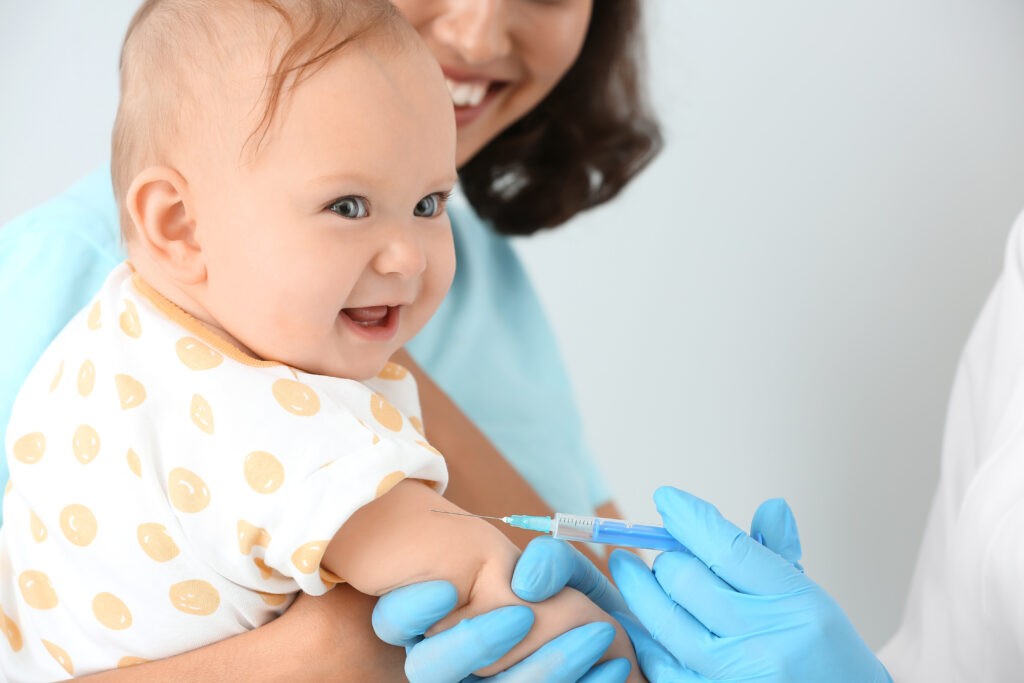My Cart(0)
The Importance of Vaccination: Protecting Our Children and Communities

The Importance of Vaccination: Protecting Our Children and Communities
Vaccination is one of the most critical public health tools available today. It protects individuals and communities from infectious diseases that can cause severe illness, disability, and even death. As parents, making informed decisions about our children's health is paramount, and understanding the importance of vaccines can help us make the best choices for their well-being. In this blog post, we'll explore why vaccinating your children is essential, drawing insights from the Centers for Disease Control and Prevention (CDC), the Department of Health and Human Services (HHS), and UNICEF.

Understanding How Vaccines Work
Vaccines play a crucial role in teaching the immune system how to fight specific infections. According to the CDC, vaccines contain weakened or inactive parts of a particular organism (antigen) that triggers an immune response within the body. By introducing a controlled amount of these antigens, vaccines help the immune system recognize and combat the real disease if it is encountered in the future. This process is akin to giving the body a practice run, so it knows how to respond effectively and swiftly when faced with the actual pathogen .
The Science Behind Vaccines
When a child is vaccinated, their immune system produces antibodies just as it would if they were exposed to the disease. These antibodies remain in the body, providing protection against future infections. This concept of "immunological memory" is what makes vaccines so powerful and effective. It's important to note that vaccines undergo rigorous testing and monitoring to ensure their safety and efficacy.
Five Reasons to Vaccinate Your Child
The HHS outlines several compelling reasons for vaccinating your children, which are backed by extensive research and public health expertise:
1. Protection from Serious Diseases
Vaccines protect children from various serious and potentially life-threatening diseases, such as measles, mumps, rubella, polio, and whooping cough. These diseases can have severe complications, including long-term health issues and death. By vaccinating your child, you are safeguarding them from these risks .
2. Community Immunity
Also known as herd immunity, community immunity occurs when a significant portion of a population is vaccinated, reducing the spread of contagious diseases. This protection extends to those who cannot be vaccinated, such as infants, the elderly, or individuals with compromised immune systems. When you vaccinate your child, you contribute to the overall health and safety of your community .
3. Prevention of Disease Outbreaks
Vaccination helps prevent outbreaks of diseases that were once common but are now rare in many parts of the world. For example, diseases like polio and smallpox have been nearly eradicated due to widespread vaccination efforts. Maintaining high vaccination rates is crucial to preventing these diseases from resurging .
4. Cost-Effective Health Care
Vaccines are cost-effective and can save families and communities significant amounts of money. Treating diseases can be expensive, not only in terms of medical bills but also due to lost income from missed work and long-term health care costs. Vaccines help reduce these economic burdens by preventing diseases in the first place .
5. Safe and Effective
Vaccines are rigorously tested through multiple phases of clinical trials before they are approved for public use. They are continually monitored for safety and effectiveness once they are in use. The benefits of vaccination far outweigh the minimal risks, and the rare side effects are typically mild and temporary .
Addressing Common Questions and Concerns
UNICEF provides answers to common questions parents have about vaccines, which can help alleviate concerns and provide clarity on this important topic.
Are Vaccines Safe?
Yes, vaccines are safe. They are thoroughly tested in laboratories and through clinical trials before being approved for use. Once in the public domain, vaccines are continuously monitored for safety. Serious side effects are extremely rare, and the benefits of vaccination far outweigh the risks .
Can Vaccines Overwhelm My Baby's Immune System?
No, vaccines do not overwhelm a baby's immune system. Babies are exposed to numerous antigens daily from the environment, and vaccines represent only a small fraction of these antigens. The immune system is designed to handle multiple antigens simultaneously, making vaccines a safe and effective way to protect your child from specific diseases .
Why Do Some Vaccines Require Multiple Doses?
Some vaccines require multiple doses to build and maintain immunity. The first dose helps the immune system recognize the pathogen, and subsequent doses strengthen the immune response, ensuring long-lasting protection. It's essential to follow the recommended vaccination schedule to provide the best defense against diseases .
What If My Child Misses a Vaccine?
If your child misses a vaccine, it's important to consult with your healthcare provider to catch up. There are catch-up vaccination schedules available to ensure your child receives the necessary protection. Delaying vaccines increases the risk of contracting and spreading preventable diseases .

Conclusion
Vaccination is a cornerstone of public health that protects individuals, families, and communities from preventable diseases. By understanding how vaccines work, recognizing their safety and efficacy, and addressing common concerns, we can make informed decisions that safeguard our children's health. As parents, ensuring our children are vaccinated is one of the most significant steps we can take to protect them and contribute to a healthier, safer world.
Remember, by vaccinating your child, you are not only protecting them but also helping to protect others who cannot be vaccinated. This collective effort is crucial in preventing the resurgence of diseases and maintaining the health of our communities. Let us all commit to making vaccination a priority and supporting the well-being of future generations.
unsubscribe at any time without costs.











